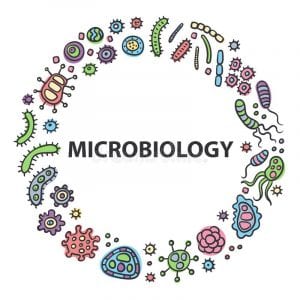From Quality Control to Regulatory Compliance: Key Concepts in Pharma Microbiology MSc
The Future of Pharma Microbiology: Emerging Trends and Career Opportunities:
-
Introduction to Pharma Microbiology MSc
Pharma Microbiology MSc is a postgraduate program that provides students with a comprehensive understanding of microbiology and its practical applications in the development, manufacturing, and quality control of pharmaceutical products. The program is designed for students interested in the study of microorganisms and their relationship to the pharmaceutical industry. Through this program, students gain the knowledge and skills necessary to succeed in a wide range of careers within the pharmaceutical industry.
-
The Importance of Microorganisms in Pharma
Microorganisms play a critical role in the development and production of pharmaceuticals. They are used to produce a wide range of drugs, from antibiotics to vaccines, and are essential in the development of new therapies and treatments. Students in a Pharma Microbiology MSc program will learn about the various types of microorganisms, their structure and function, and how they can be manipulated for use in the production of drugs.
-
Microbiology and Pharmaceutical Manufacturing
Pharmaceutical manufacturing is a complex process that requires a deep understanding of microbiology. Students in a Pharma Microbiology MSc program will learn about the various types of microorganisms that are used in pharmaceutical manufacturing, including bacteria, viruses, and fungi. They will also study the principles of pharmaceutical manufacturing, including quality control and regulatory compliance.
-
Quality Control in Pharma Microbiology
Quality control is a critical aspect of pharmaceutical manufacturing. Students in a Pharma Microbiology MSc program will learn about the principles of quality control and how to implement them in the manufacturing process. They will also study the various methods used for quality control testing, including microbial testing and endotoxin testing.
-
Regulatory Compliance in Pharma Microbiology
The pharmaceutical industry is highly regulated, and compliance with regulatory requirements is essential for ensuring the safety and efficacy of pharmaceutical products. Students in a Pharma Microbiology MSc program will learn about the various regulatory bodies and the requirements for compliance, including Good Manufacturing Practice (GMP) and Good Laboratory Practice (GLP).
-
Environmental Monitoring in Pharma Microbiology
Environmental monitoring is a key component of pharmaceutical manufacturing. Students in a Pharma Microbiology MSc program will learn about the principles of environmental monitoring and how it is used to ensure the safety and quality of pharmaceutical products. They will also study the various techniques used for environmental monitoring, including air sampling and surface testing.
-
Microbial Contamination in Pharma
Microbial contamination is a significant risk in pharmaceutical manufacturing. Students in a Pharma Microbiology MSc program will learn about the sources of contamination, the impact it can have on product quality, and how to prevent it. They will also study the various methods used for microbial identification, including microscopy, biochemical tests, and molecular methods.
-
Sterilization Techniques in Pharma Microbiology
Sterilization is a critical step in pharmaceutical manufacturing. Students in a Pharma Microbiology MSc program will learn about the various sterilization techniques used in the industry, including autoclaving, filtration, and irradiation. They will also study the principles of validation and qualification of sterilization processes.
-
Microbial Identification in Pharma Microbiology
Microbial identification is essential in pharmaceutical manufacturing. Students in a Pharma Microbiology MSc program will learn about the various techniques used for microbial identification, including classical methods, automated systems, and molecular methods. They will also study the principles of microbial taxonomy and classification.
-
Endotoxin Testing in Pharma Microbiology
Endotoxin testing is an important aspect of pharmaceutical manufacturing. Students in a Pharma Microbiology MSc program will learn about the principles of endotoxin testing, its importance in the production of pharmaceuticals, and the various methods used for testing. They will also study the principles of validation and qualification of endotoxin testing methods.
-
Antimicrobial Resistance in Pharma
Antimicrobial resistance is a significant public health concern. Students in a Pharma Microbiology MSc program will learn about the causes and mechanisms of antimicrobial resistance, its impact on public health, and the efforts being made to combat it. They will also study the principles of antimicrobial susceptibility testing and the development of new antimicrobial agents.
-
Biopharmaceuticals and Microbiology
Biopharmaceuticals are a growing area of the pharmaceutical industry. Students in a Pharma Microbiology MSc program will learn about the role of microbiology in the development and production of biopharmaceuticals, including monoclonal antibodies and recombinant proteins. They will also study the principles of downstream processing and quality control of biopharmaceutical products.
-
Vaccines and Microbiology
Vaccines are critical for preventing the spread of infectious diseases. Students in a Pharma Microbiology MSc program will learn about the role of microbiology in vaccine development and the various types of vaccines, including live attenuated, inactivated, and subunit vaccines. They will also study the principles of vaccine production andquality control, including the development of adjuvants and the use of animal models in vaccine testing.
-
Microbiome and Pharmaceuticals
The human microbiome is an area of growing interest in the pharmaceutical industry. Students in a Pharma Microbiology MSc program will learn about the role of the microbiome in human health and disease, and the potential for microbiome-based therapies. They will also study the principles of microbiome analysis and the development of microbiome-based drugs, including probiotics and fecal microbiota transplantation.
-
Career Opportunities in Pharma Microbiology
Graduates of a Pharma Microbiology MSc program have a wide range of career opportunities in the pharmaceutical industry, including research and development, quality assurance, and manufacturing. They may also work in regulatory agencies or in academia, teaching and conducting research. With a strong foundation in microbiology and its practical applications in pharma, graduates of this program are well-prepared to pursue rewarding and fulfilling careers in this exciting field. Additionally, some graduates may choose to continue their education by pursuing a PhD in microbiology or a related field, further expanding their career options and opportunities for advancement.

Join the conversation